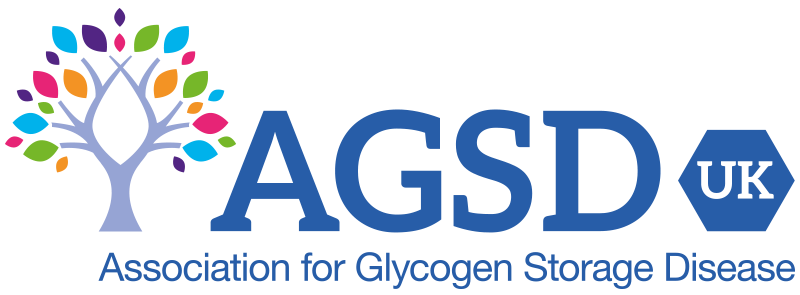It is usually a long and frustrating process to get diagnosed with this ultra rare disease, but once you are it opens the door to understanding and improvement.
COVID-19 and McArdle’s
From Andrew Wakelin, McArdle’s Coordinator
8 December 2021
During the last year there have been very few reports of people with McArdle’s catching COVID-19. There is no evidence to suggest that the Delta or Omicron variants are any more severe for people with McArdle’s than any of the previous variants. We continue to encourage everyone to be vaccinated to the full extent available as it seems that any side-effects are usually relatively mild and only last for a day or so.
From Andrew Wakelin, McArdle’s Coordinator
22 December 2020
We have now had reports of four people with McArdle disease receiving a vaccination for COVID-19. Initially they have all been health care worker. No doubt the numbers will rise substantially in the coming weeks. So far no adverse reactions have been reported, other than the usual mildly sore arm for a few days.
From Andrew Wakelin, McArdle’s Coordinator
22 November 2020
With the second wave of the COVID-19 pandemic being well established, those with McArdle disease are reminded to check the letter from the McArdle Clinic, see next two items below. The letter provides useful guidance on the risks. We still do not have any specific information to say that McArdle’s puts you at increased risk if you catch COVID-19.
McArdle’s in itself does not make it necessary to shield. However, if you are also in one of the high risk groups (such as older age, a respiratory condition, etc) McArdle’s would be an added complication and you should shield.
If someone has no additional risk factors, is aerobically fit, manages their McArdle’s well, and in particular has never had (or very seldomly had) an episode of rhabdomyolysis, then I would suggest that their decision would be not to shield.
From Andrew Wakelin, McArdle’s Coordinator
3 April 2020
The McArdle Clinic has written today to those attending the clinic to provide guidance regarding COVID-19 coronavirus. This provides very useful guidance and links. It offers further assistance, mainly by email, should it be needed.
Please see the item dated 2 April on our COVID-19 page, where you can download a PDF of the letter.
The information and guidance in the letter will also be of interest to others in the UK who do not manage to attend the Clinic. However, please note that the individual further advice offered can only be provided to those who attend the clinic, and not to others in the UK or abroad.
From Andrew Wakelin, McArdle’s Coordinator
25 March 2020
It appears that letters of advice dated 21 March regarding Coronavirus have been issued to some (not all) people with McArdle’s advising them to stay at home for 12 weeks. They purport to come “From your GP surgery” and advise that the person is “at risk of severe illness if you catch Coronavirus”. We do not know why these have been issued to people with no other underlying health condition, only McArdle’s. It may be that McArdle’s (GSD5), which does not have respiratory involvement, has been confused with other GSDs which can have respiratory involvement.
The letter instructs the person not to leave their home, but it is not clear whether this applies to all recipients, or only to those who have developed symptoms of coronavirus. A person with McArdle’s who does not leave their home for 12 weeks will be at risk of losing a great deal of aerobic fitness, which is likely to be debilitating.
We can only suggest that you endeavour to contact your GP surgery to confirm whether they did send this letter, and if so what the basis of it was. If the concern is only about McArdle’s you may wish to challenge the 12 week isolation instruction.
If you do self-isolate for 12 weeks, I would recommend that you do all you can to maintain aerobic fitness with a daily execise routine.
From Andrew Wakelin, McArdle’s Coordinator
23 March 2020
Knowledge is very much still developing. However, my understanding at this time is that McArdle disease does not pose any particular additional risk to people with COVID-19.
Although McArdle’s is an underlying health condition, it is not the sort of condition that the doctors are concerned about when they use that phrase in regard to COVID-19. The concern seems to be primarily about the immune system, lung/chest and heart conditions.
The starting point for us all in the UK must be the government’s advice on this pandemic. In addition, there are some COVID-19 general notes on the IamGSD website.
Some viruses can cause rhabdomyolysis or make it worse. Although it is not known whether this applies with COVID-19, we should try, even more than usual, to avoid rhabdomyolysis and a visit to A&E where relevant care may be overloaded.
Repeated intense coughing can cause cramps in our abdominal muscles, and coughing is a symptom of COVID-19. It is probably a good idea for us to try, every few minutes, to suppress the cough for a break of at least 30 seconds.
As of today some people with McArdle’s and no other underlying condition have had government notices to self-isolate. Yet other people in the same position have not had the notice. It seems possible that the notices are being authorised by GPs and they are taking different views on the need. There does not appear to be any scientific evidence that such people should self-isolate.
